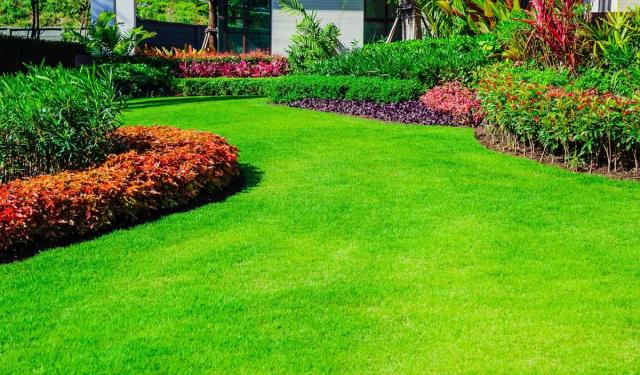There’s nothing quite like the beginning of summer. The weather is warm and sunny, our lawns are lush and green, and everywhere folks are getting back into the garden. With this increased focus on our landscapes comes the increased usage of lawn mowers, shears, clippers, trimmers, power equipment, saws, pruners, chemicals, and other dangerously sharp and toxic substances that have the potential to inflict great bodily harm. From personal experience, as my scars would prove, I know the last place you want to spend a summer’s day is in the emergency room. In fact, it’s probably more for my own benefit that I’m writing this week’s blog post on safety than it is for anyone else. Unfortunately, I haven’t always had the best workplace safety practices. But safety is no joking matter. From 1996 to 2004, medical researchers analyzed how many emergency room visits were due to lawnmower accidents. They discovered during that time period nearly 663,400 people had been injured by a lawn mower, and almost 12,000 people ended up hospitalized. That’s over 80,000 injuries a year attributed to lawn mowers alone!
Wear Appropriate Clothing and Eye/Ear Protection
Most of these accidents probably could have been avoided using some common sense and some basic safety practices. While I can’t do much to improve your common sense, I can share some important safety tips that will greatly reduce your risk of injury while working on the lawn and garden this year. First, wear the appropriate clothing for the job. When mowing, trimming, sawing, or participating in other activities where there’s a possibility of debris flying up into your face, wear safety glasses. This is a no-brainer especially when using a grass trimmer. It’s almost guaranteed something will come into contact with your eyes. Ear protection is also a must-have when using loud power equipment.
Maintain Equipment and Know How to Use it Properly
Next, learn how to use your equipment properly. I’ve seen some very close calls while working on a landscape crew one summer. Take some time to familiarize yourself with any lawnmower or power tool that you may be using. Always follow operating instructions and don’t alter or bypass the safety mechanisms. When mowing steep lawns with a riding lawnmower, it’s best to go up and down with the hill instead of side hilling. This will help prevent rollovers. Keep garden tools sharp to prevent slipping and always use the appropriate tool for the job. You don’t need a chainsaw to weed the garden, just like you shouldn’t use a pair of hand pruners to take out a tree. I have a large, jagged scar on my left index finger from trying (and failing) to cut a piece of PVC pipe with a hacksaw instead of using the appropriate tool, a PVC cutter. And for goodness sake, when using electric power tools always be aware of the power cord.
Know Your Limits and Keep Hydrated
Even when you are properly dressed and knowledgeable with handling your equipment, accidents can still happen. Sometimes problems arise from simply misjudging your body’s limits. Working in the hot summer heat can quickly lead to heat-related problems. Heat stroke and dehydration are dangerous conditions that can be avoided by drinking plenty of fluids and taking frequent breaks. Pay attention to how your body feels. If you or anyone you’re working with begin to experience confusion, nausea, dizziness, rapid pulse, or breathlessness stop immediately and seek help. Young children under four years old and adults over 65 are particular more prone to heat-related illnesses. While it’s important to drink plenty of fluids while working outside, make sure they don’t contain alcohol or large amounts of sugar since these drinks will actually cause you to lose more body fluid and fail to rehydrate.
Practice Caution When Dealing With Chemicals

By taking just a little time to follow some basic safety practices, you can greatly reduce the risks of an accident this summer. After all, where would you rather spend your summer? Out in your yard and garden with your friends and family or stuck alone watching TV from a hospital bed?





